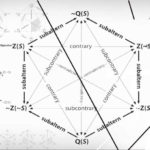We run our website the way we wished the whole internet worked: we provide high quality original content with no ads. We are funded solely by your direct support. Please consider supporting this project.
How do you respond to 1 Kings 13:2–3?
The Lord proclaims against the pagan alter of Jeroboam, “O altar, altar, thus says the Lord: ‘A son shall be born to the house of David, Josiah by name; and he shall sacrifice on you the priests of the high places who offer incense on you, and human bones shall be burned on you.’ He gave a sign the same day, saying, ‘This is the sign that the Lord has spoken: The altar shall be torn down, and the ashes that are on it shall be poured out.’” (Cf. 2 Kings 22:1; 23:15–16)
The Lord was growing impatient with the ever-increasing idolatrous practices of the Israelites. He therefore decreed that it would come to a violent end in a subsequent generation by a descendant of the house of David. As a proof that Yahweh, not an idol, is the sovereign Lord of history, Yahweh surrounded this predetermined destruction with certain prophetic signs. He told the Israelites ahead of time how this destruction would occur and even the name of the one who would initiate it: Josiah (meaning, “Yahweh supports”).
The passage clearly expresses that at this point God had resolved to control, and thus foreknow, certain aspects of the future. But the passage does not suggest that everything about the future is foreknown as a settled fact, or even that the portion that would come to pass (which the Lord at this point foreknew) was always foreknown by God.
It is important to keep in mind that the sovereign Lord of history can determine whatever he wants to about the future and thus foreknow it. He wisely balances the freedom he grants his human subjects with his providential control as he guides the world to achieve his overall objectives. Thus, for example, though Josiah’s father Amon remained free in other respects, he was apparently not free to choose any name other than “Josiah” for his son, for this had been divinely determined. And though Josiah remained a free agent, at least one thing about his future was absolutely certain: he would destroy the pagan altar and end the pagan priesthood that had been plaguing Israel.
Many people who are accustomed to the classical view of divine foreknowledge initially have difficulty with the notion of a partly settled and partly open future. It seems to them that it must be all one way or the other. This is why they are inclined to interpret biblical passages which depict God as knowing some definite things about the future as providing evidence that God has exhaustive definite knowledge of the future.
As we argued earlier, however, neither the Bible nor our experience supports such an all-or-nothing attitude. The biblical accounts that depict God as knowing aspects of the future are balanced by accounts that depict God as not knowing aspects of the future. And we know from our own experience that all the free choices we make are made in the context of many other things that are already settled. We are not able to choose the initial circumstances of our life, our basic physical make up and personality, and a number of things that happen to us along life’s way. But within this determined context there are many things we can choose—such as how we will respond to these factors that are outside of our control.
For this reason we ought to have little trouble affirming that God could control and foreknow that a future king named Josiah would destroy paganism in the land without concluding that everything about the future is settled and that God eternally knows it as such. To return to the chess analogy, the sovereign, supremely intelligent, cosmic chessmaster has declared, “In no more than seven moves I shall take your bishop.” You can of course still move however you wish. But this much of the future game has already been decided.
Category: Q&A
Tags: Open Theism, Q&A
Topics: Open Theism, Responding to Objections
Verse: 1 Kings 13
Related Reading

What is the significance of Acts 15:7?
At the Jerusalem council, “Peter stood up and said to them, ‘My brothers, you know that in the early days God made a choice among you, that I should be the one through whom the Gentiles should hear the message of the good news…’” The tense of the verb that locates God’s “choice” in “the…

What does the Bible mean when it says God “sent an evil spirit” on certain people?
Question: In Judges 9:23, I Samuel 16:15ff and 18:10 it is said that God sends evil spirits on people. Doesn’t this support the idea that everything Satan and demons do is under God’s sovereign control? Answer: I’ll make six points in response to this question. 1) If everything Satan and demons do is under “God’s…

The Case for Including Open Theism Within Arminianism
Here is an excellent post by my good friend Roger Olson in which he makes the case that Open Theism should be embraced by Arminians as an orthodox, if somewhat non-traditional, form of their faith. In fact, Roger argues (rightly in my opinion) that Open Theism is much closer to the “heart” of Arminianism than…

What is the significance of Jeremiah 3:19–20?
“I thought how I would set you among my children…And I thought you would call me, My Father, and would not turn from following me. Instead, as a faithless wife…you have been faithless to me…” If the future is eternally and exhaustively settled, and if God therefore knows it as such, he could not have…

The Logical Hexagon Made Simple
by: Greg Boyd The Hexagaon in a Nutshell For those of you who don’t have the twenty to thirty minutes it will probably take to read this essay but who nevertheless would like to have some idea of what the Logical Hexagon is all about, here is my two sentence elevator speech: The Logical Hexagon…

How do you respond to 2 Samuel 24:1 and 1 Chronicles 21:1?
One text says the Lord incited David to count the warriors of Israel and Judah. The other text says that Satan incited David to count the warriors of Israel. (The Lord had forbidden this, as it displayed a confidence in military strength rather than in Yahweh’s power). Compatibilists frequently cite this as an example of…
